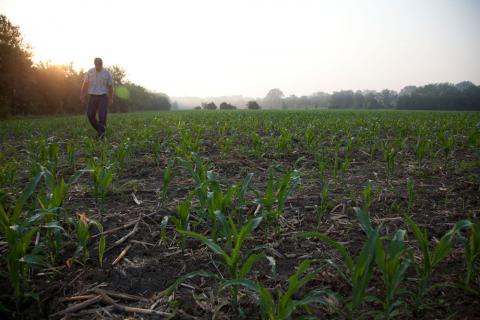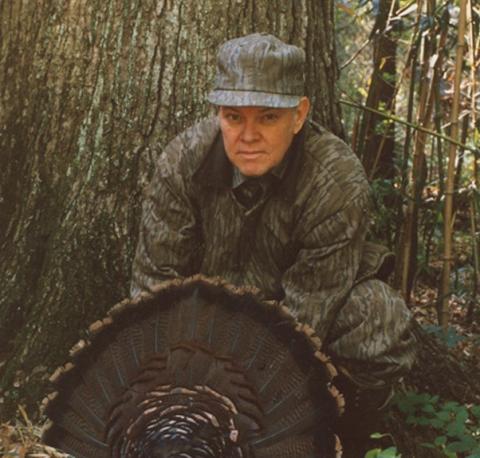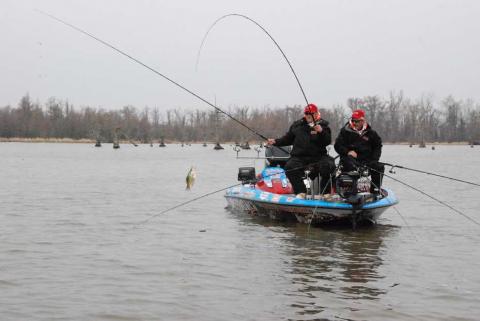Whether you are heading on a backpacking day trip or planning an epic thru-hike, you need food to nourish your body and provide the energy you need to navigate the wilderness. While lightweight backpackers need to be mindful of their pack weight, you don’t need to limit yourself to protein bars and nutrition gels for sustenance; backpacking food can be nutritious and tasty.
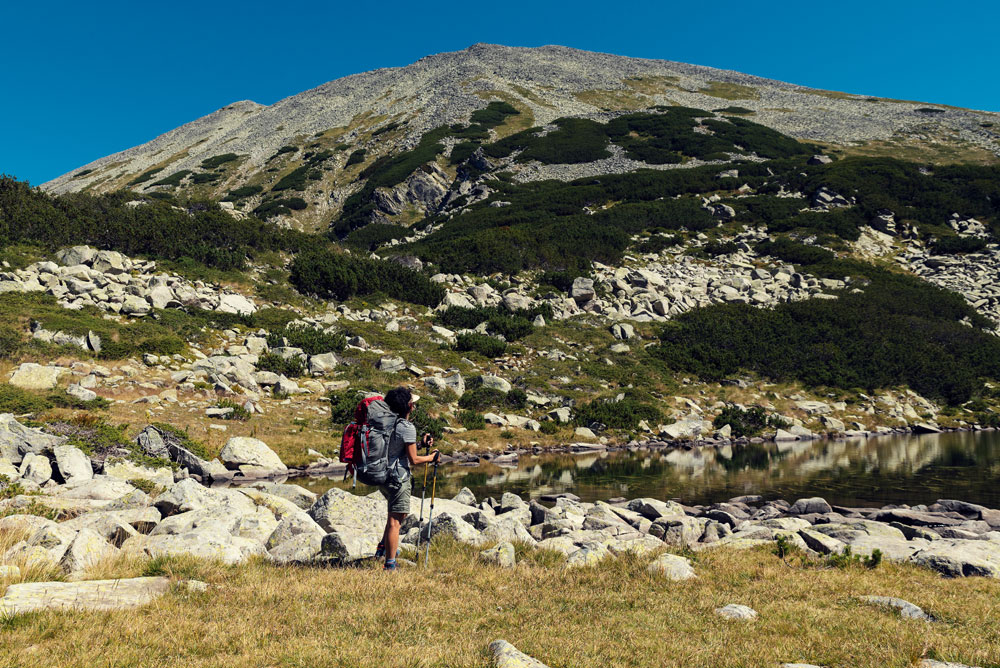
Essential Things to Look For in Backpacking Food
Before stocking up your backpack with delicious meals for your next trip, there are a few factors to take into consideration to determine whether a food is appropriate and safe to take backpacking.
Lightweight
Regardless of whether you are an ultralight trekker or heading on a lightweight thru-hike, the weight of your pack can make or break your trip. Food takes up significant space in your pack, so your meals and snacks should be as light as possible. The best choices are dehydrated or freeze-dried products.
Nutrient-Rich
You burn a lot of calories on the trail, so you need calorie-dense, highly nutritious foods to replenish your energy stores. Opt for energy-boosting snacks, such as nuts, seeds, and jerky, with at least 100 calories per ounce to keep your pack weight down and your energy up.
Shelf Stable
Avoid perishable foods to prevent food poisoning and attract unwanted attention from animals. Choose foods that can be stored at room temperature and, if you bring meat or dairy products like hard cheese or salami, eat these items within the first or second day.
Preparation
Conservation is crucial when you are on the trail. Foods that have a short cooking time or can be eaten raw use less fuel and require less energy to prepare at the end of the day.
How to Cook & Prepare Backpacking Food
Meal planning is essential when arranging your backpacking trip. Planning ensures that you won’t run out of food on the trail, and it can help you figure out how to pack a hiking backpack more efficiently.
The amount of food you’ll need to bring varies depending on your activity level, terrain, weather, the length of your trip, and your size and weight. A reasonable estimate is between 2,500-4,000 calories per person per day. Varying the types of flavors and textures of the food you eat each day ensures you get a wide variety of nutrients and keeps your tastebuds interested.
Here are some delicious and nutritious meal prep ideas for your next backpacking adventure:
Breakfast Food
1. Instant Oatmeal
This classic hiking breakfast is full of nutrients, including iron, zinc, and B vitamins, and it's high in fiber to keep you fuller for longer. With individually packaged instant oats, all you need is a little hot water and a spoon; the oatmeal packet acts as a bowl, so you don’t need to pack or clean extra serving ware.
2. Powdered Eggs
Real eggs are not a viable option for a backpacking trip, but eggs are an excellent source of protein and essential nutrients and make a satisfying start to the day. Powdered egg offers a similar nutrient profile and comes together with just a little warm water. Stir in freeze-dried bacon bits or chopped tomato for a complete breakfast.
3. Pancakes
Pancakes may take a little more fuel than other breakfast options, but, if you're traveling with a group, they can be a great way to feed a crowd. Prepack pancake mix in a Ziploc bag and shake with water. Snip off the corner for a fuss-free way to get perfect pancakes every time.
Lunch
4. Tuna Salad
Unless you plan to catch your lunch, prepackaged tuna is an excellent protein source and a filling meal. Mix a little hot sauce, dairy-free mayonnaise, and some sliced fresh vegetables into the pouch, and you have a well-rounded lunch.
5. Cheese, Salami & Crackers
If you need the ideal quick lunch that requires no cooking and won’t put a dent in your fuel resources, chow down on cheese, salami, and crackers. Opt for hard cheeses like cheddar or parmesan and air-dried salamis to minimize the chance of spoilage inside your pack.
6. Pita with Hummus
Pita or tortillas are a better choice than a standard loaf of bread when backpacking. They take up less space in your pack while still providing hunger-busting starch. Fill half a pita with high-fiber, protein-packed hummus and a few sliced vegetables.
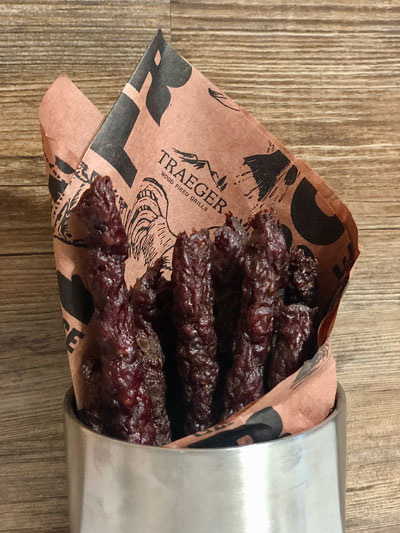 Energy Snacks
Energy Snacks
7. Trail Mix
Trail mix is the quintessential backpacker’s snack. It's delicious and portable, and you can access the mix on the go. You can customize the mix to suit your taste. Try a balanced blend of sweet and savory items like salted almonds and cranberries or peanut butter pretzels and raisins.
8. Jerky
High in protein and satisfyingly savory, jerky is a must-have for any serious backpacker. You can find a huge variety of flavors, from classic hickory-smoked beef to exotic alligator or ostrich jerky.
9. No-Bake Energy Bites
No-bake energy bites are a great alternative to pre-packaged bars that are often full of sugar and preservatives. They’re simple to make by blending peanut butter, dates, oats, chia seeds, and your choice of add-ins. Try M&Ms or chunks of dark chocolate for a sweet treat.
Dinner
10. Salmon Risotto
Who says fancy meals don’t belong on the trail? This salmon risotto recipe is simple and delicious, and it is quick to warm up for a filling midday meal. You can mix up the seasoning stock for this recipe at home by adding chicken stock powder, garlic powder, freeze-dried green onions, and pepper in a Ziploc bag. Prepare instant rice with water and the seasoning, add flaked vacuum-sealed smoked salmon, and mix with dried parmesan cheese.
11. Jerky and Mash
A bag of instant mashed potatoes is the perfect lightweight option to bulk out a meal with extra starch. Just add jerky and a healthy portion of fresh vegetables, or foraged wild greens, and you have the closest thing to a roasted meal.
12. Taco Bowl
While you may be unable to enjoy the crisp crunch of a classic taco, this meatless taco bowl is sure to replenish your energy at the end of a long hike. Take a pouch of instant rice, add instant refried beans, taco seasoning, cheddar, and sliced bell peppers. Now you have a quick and easy meal to enjoy.
Drinks
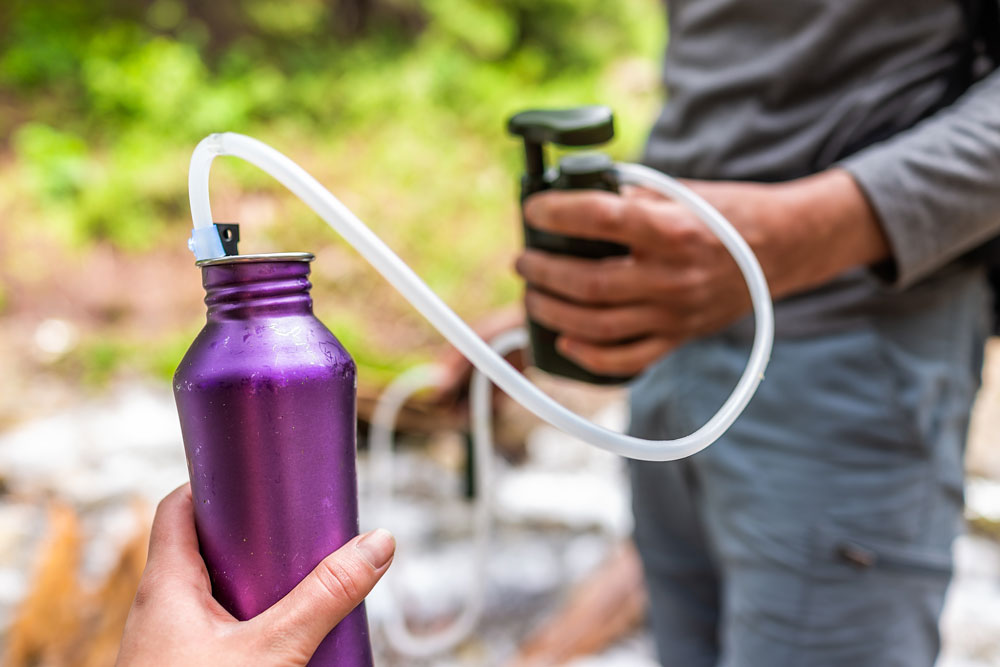
Water should be your primary source of hydration when backpacking. But you can also benefit from packing a few other beverages to supplement your meals on your trip.
Take a few sachets of electrolyte mix if you are planning a summer trek to help prevent dehydration. Electrolyte powder mixed with water creates a beverage similar to a sports drink that replaces minerals lost through sweat. You can also pack teabags and instant coffee powder for a quick morning caffeine fix.
Other Backpacking Meal Tips
There are a few items you should avoid bringing on a backpacking trip, including fresh meat or fish and large amounts of dairy. You should also avoid carrying whole fruits and vegetables and, instead, clean, slice, and package them in Ziploc or vacuum bags before you leave.
Prepare as many of your meal components at home as possible to avoid carrying excess fuel and spending too much time cooking food on the trail.
Invest in a dehydrating appliance and dry out fruit, vegetables, fish, and meat ahead of time. This will reduce your reliance on prepackaged food. However, don’t be afraid of using packaged food when backpacking; it can be a nutritious, affordable, and convenient option.
Having a good variety of food on the trail ensures you always have the energy you need for a safe and enjoyable backpacking trip. Choose lightweight, non-perishable foods that provide a broad range of nutrients and which are easy to prepare.
Explore the Mossy Oak blog for more recipes to try on your outdoor adventures.

 Energy Snacks
Energy Snacks














